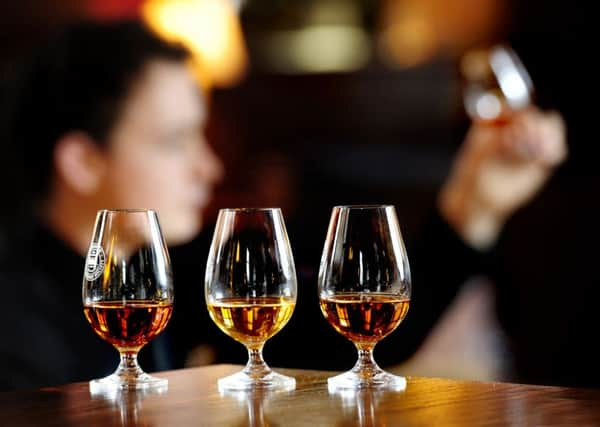Scotch whisky gets top protection from fakes in Africa


The brand has been registered as a geographical indication (GI) – a whisky produced in Scotland in accordance with UK law - with the 17 member countries of the Organisation Africaine de la Propriete Intellectuelle (OAPI).
This gives Scotch Whisky a high level of legal protection against fakes across OAPI, which makes up more than a fifth of the geographical area of Africa and has a population of more than 150 million people.
Advertisement
Hide AdAdvertisement
Hide AdThe Scotch Whisky Association (SWA), the industry trade body responsible for the application, understands that Scotch is the first spirit drink to be protected as a GI in OAPI.
Scotch must be made in Scotland from water, cereals and yeast and matured for at least three years.
Andrew Swift, legal counsel with the SWA, said: “This is a significant step forward in the protection of Scotch Whisky.
“OAPI covers a vast area with a growing population. Demand for Scotch from countries in OAPI is growing.
“Between 2005 and 2014, Scotch exports to all OAPI countries increased by 275 per cent to £13.6 million from just under £5m.
“Geographical indication status is of great value to the Scotch Whisky industry and ensures we have the tools we need to protect consumers and stop unfair competition.”
GI registration for Scotch in OAPI comes just months after the same legal recognition in Botswana.
Scotch is now officially recognised in the laws of nearly 100 countries, including the whole of the European Union.
Advertisement
Hide AdAdvertisement
Hide AdBrian Olley, the British High Commissioner to Cameroon, who attended a signing ceremony this month in Yaoundé, OAPI’s headquarters, said: “This is an historic moment and a practical step forward in providing protection to guard against improper use of the name Scotch Whisky.
“I am delighted that the British High Commission has been able to play a part in contributing to this important progress in protecting consumers in Africa.”
OAPI comprises: Benin, Burkina Faso, Cameroon, Central African Republic, Chad, Comoros, Equatorial Guinea, Ivory Coast, Gabon, Guinea, Guinea-Bissau, Mali, Mauritania, Niger, Republic of Congo, Senegal and Togo.
The application was submitted by the SWA in January 2014, with the support of the British High Commission.
Only products that have a specific geographical origin and possess a quality and a reputation or other characteristic associated with that origin qualify for GI status.
That means Scotch Whisky is recognised as a product that must be made exclusively in Scotland in accordance with UK law.
GIs were first formally recognised in the World Trade Organisation Agreement on Trade Related Aspects of Intellectual Property Rights in 1994.
All WTO members must protect a GI from misuse. The Scotch Whisky Association is registering Scotch Whisky as a GI in as many countries as possible.